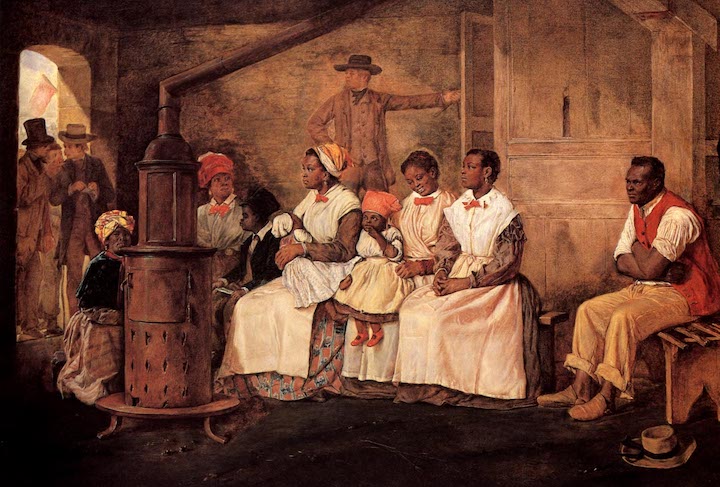I have not exactly been terse in these columns in recalling the warnings about reducing religion to matters of merely personal belief. I have cast up, also, a further warning about the tendency to identify moral convictions with religious beliefs, and in that way screen out the ground of reason in moral judgment.
Hence we find litigants professing their earnest “belief” that “life begins at conception” – an objective truth, confirmed anew in every textbook on embryology. But then in a further step, freighted with dangers even deeper, some of our friends favor an exemption from certain laws based on that kind of religious “belief,” resting most decisively on feelings sincerely held, detached from evidence and reason.
Should we be surprised, I asked, if a generation tutored on these kinds of arguments, finally turn and seek a “religious freedom” not to be bound by laws that seek again to bar the killing of children in the womb?
I remarked, in my last column, that there are ways we can protect a right of doctors and nurses from an obligation to participate in abortions – and we can do that without reducing moral convictions to mere “beliefs,” detached from tests of truth.
One striking example in this vein arose from the chain of happenings that gave rise to the Civil Rights Restoration Act of 1988. Things began with the curious case of a suit against Grove City College, a college that has prided itself on accepting no money from the federal government. In a curious decision in 1984, the Supreme Court held that the fact that a student received a loan from the federal government makes the college itself a recipient of federal funds.
But if the school refused to accept the panoply of federal rules, the Court held that the only penalty would be ending the loans from the federal government. There would be no need to apply those federal rules to the other programs of the College. That holding soon stirred a movement in Congress to offer a “corrected” reading of the federal statutes.
Thus came the Civil Rights Restoration Act, to restore rights that had not existed: If a student received a loan from the federal government, the full scope of federal regulations would now apply to all parts of the college.
But then the Act ran into trouble. We were beginning to hear the argument that the refusal of a hospital to perform abortions was a discrimination based on sex, for this was a refusal to accept, as a legitimate medical procedure, a surgery performed solely on women.

If that kind of argument were credited, the implications now hit home: If students received loans at Georgetown University, rumored to be a Catholic school, all federal rules would kick in, and Georgetown would come under an obligation to allow abortions in its university hospital.
And that is where everything stalled. Seasons passed, and the dilemma lingered on into the next Congress. One proffered solution was to give an exemption to “religious” hospitals, freeing them from the need to perform abortions. But the revealing problem there was that many hospitals with a moral aversion to performing abortions were not religious hospitals.
In Pennsylvania, out of 380 hospitals, 240 were community hospitals with no religious character, and only 40 of them performed abortions. As Senator Heinz of Pennsylvania explained, most of these hospitals “have chosen for moral reasons not to perform abortions.” Once again, even people not Catholic were using the same reasoning of the natural law that guided the Church.
After the political standoff, lasting for four years, it was Senator John Danforth of Missouri who solved the problem with a simple amendment:
Nothing in this title shall be construed to require or permit any person, or public or private entity, to provide or pay for any benefit or service, including the use of facilities, related to an abortion. Nothing in this section shall be construed to permit a penalty to be imposed on any person because such person has received any benefit or service related to a legal abortion.
And there it was: No claim to an exemption based on “religion” or “belief.” It was a stark assertion by Congress that there was no “obligation” to perform abortions. And yet, by the logic of a “moral” judgment, if there was something truly rightful about abortion, there would have to be an obligation to respect and facilitate that rightful thing, not resist and deny it.
The Truth that Dare Not Speak Its Name here is that these moves of Congress, to deny the funding of abortion, or bar the obligation for doctors and nurses to become complicit in abortion – these moves by the Congress claim no coherence if Roe v Wade had articulated something deeply, morally right.
These moves by Congress claim their coherence only when set against the understanding, brought out sharply in Lincoln’s day, that the President and Congress have the authority to act upon a moral and legal judgments quite at odds with what the Supreme Court has declared, whether on the right to hold slaves as property or order the killing of babies in wombs.
This flexing of power by Congress reminds us that the authority is still there, still contained in the logic of the separation of powers, and it is still worth taking the time to remind ourselves of the fuller story to be told here.
*Image: Slaves Waiting for Sale: Richmond, Virginia by Eyre Crowe, 1861 [Heinz History Center, Pittsburgh, PA]















